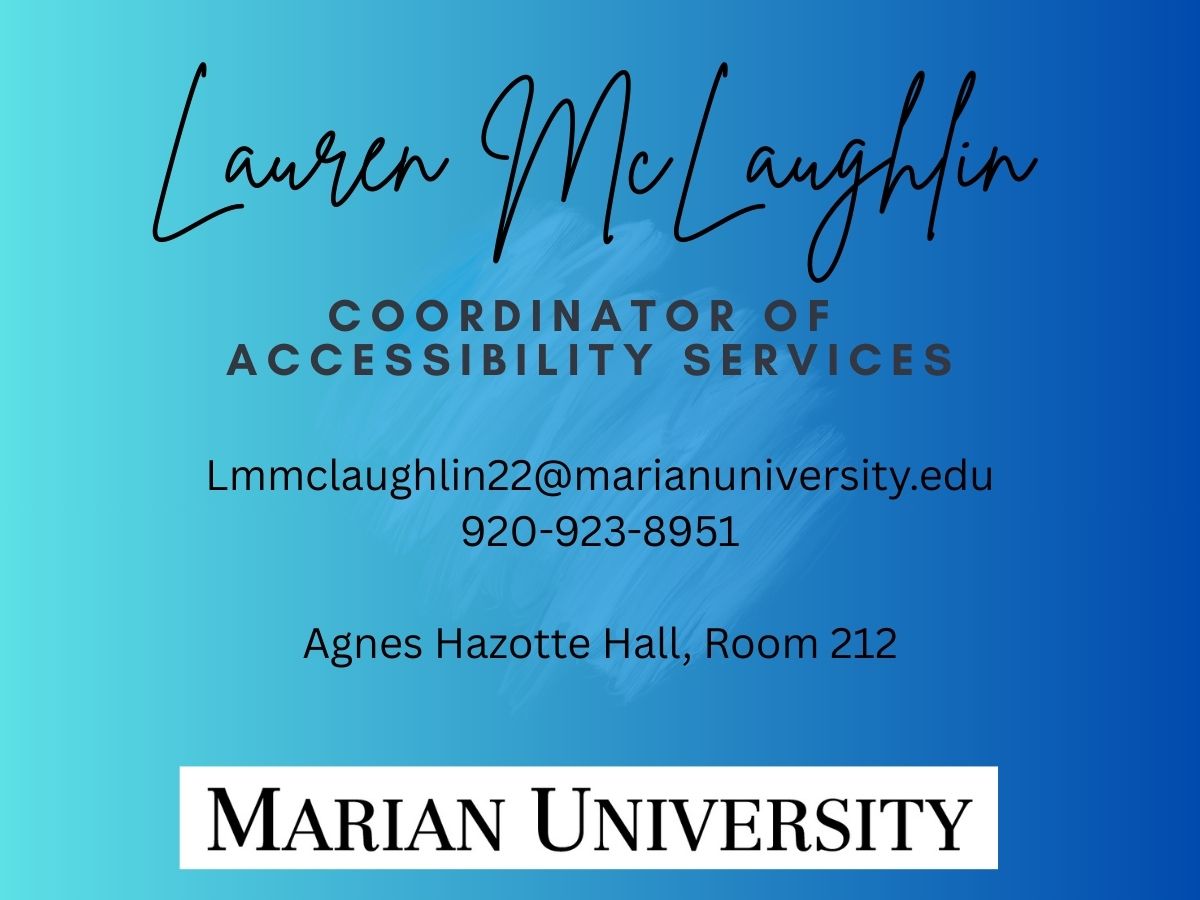General
Welcome to Marian University MSN Program!
We are excited that you are a member of our nursing team! On this page you will find resources to help navigate your progression through the program.
Please be sure to read all modules and information provided to you.
All efforts are made to keep this information up to date.
If you find information that is inaccurate, out of date, or links that do not work, please email nursing@marianuniversity.edu to report the problem.
-
Running this practice quiz will force the student to pay for an annual subscription to Respondus Monitor (webcam + screen recording), which utilizes video monitoring.
-
Running this practice quiz will allow the students to test whether Responds LockDown Browser works on their computer. This version does not require a subscription to use.
-
Hello MSN Students,
We'd love to hear from you! Please take a few minutes to share your honest feelings about how things are going in the nursing program using the link provided above. Your input is crucial and will help us improve the program for all students.Alternatively, you may also reach out to your class representative, Maggie Schmit (mlschmit18@marianuniversity.edu), with concerns, feedback, or suggestions related to the overall operation of the MSN program and how we can better support the student body. This includes topics like resource availability, curriculum structure, and general program policies.
Please note the following important distinction:-
✅ Appropriate Concerns for the form/Maggie: Program structure, student resource needs, general policies, and systemic support issues.
-
❌ Inappropriate Concerns for the form/Maggie: Issues related to an individual student's performance in a specific course (e.g., a grade dispute or concerns about a single assignment). For these individual, course-specific concerns, you must contact the course instructor directly. If escalation is required, please follow the formal reporting structure outlined in the Student Handbook.
The insights you share here will be discussed at our next Graduate Program Meeting, held on the second Friday of each month. If you'd like to join the conversation in person, feel free to email Dr. Janet Teske, the Graduate Program Director, at jjteske86@marianuniversity.edu.
We'll be sure to provide an update after the meeting to address your feedback.
Thanks so much,
The Nursing Department at Marian University -

